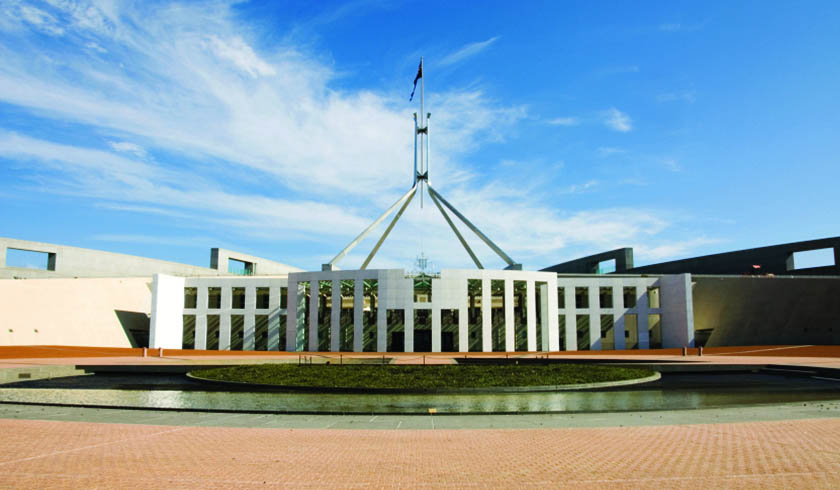3 factors to influence property buyer’s activity post-election

Consumer sentiment or buyer behaviour has a significant influence on several aspects of society, including property investment, according to Propertyology’s Simon Pressley.
As such, the activity of consumers across property markets largely drive the movements of prices.
“When we buy a property, whether it’s a family home or investment property, we’re also buying debt. There’s not many people who pay cash for properties. The decision to go into extra debt is not something that many people will do when they’re not feeling confident about their job, or their salary, or their broader future.”
“It has a direct influence on buyer behaviour, and, at the end of the day, it’s buyer behaviour that creates property prices – the reason they are fluctuating up or down,” Mr Pressley highlighted.
Prior to the recent federal election, buyer’s activity has slowed down due to uncertainties brought by potential changes in policies, as well as the tightening of credit and the general decline witnessed by most capital city markets, including the prime markets of Sydney and Melbourne.
While some markets are still considerably changing, the conclusion of the federal election has, somehow, brought back the confidence of investors as they gain a clearer view of a potential economic future as laid out by the government.
How will buyer’s activity change over the coming years?
Drivers of change
According to Mr Pressley, there are three main factors that will affect the shift of buyer’s activity across Australia’s property markets, namely:
Negative gearing
A lot of investors chose to sit on their hands when the federal election brought about a discussion on major changes in negative gearing policies, wherein the Labor Party proposed that negative gearing be applied only to new properties and capital gains tax discount be halved.
Following the Liberal government’s win, uncertainties on capital gains tax and negative gearing changes were eliminated.
“Investors might have been sitting on the fence pre-election, deliberately choosing not to be a buyer. Now that uncertainty is removed, I believe that there’ll be an extra 5 per cent increase in buyer activity from that investor space,” Mr Pressley said.
First Home Loan Deposit Scheme
During the lead up to the election, the Liberal government announced its intention to give first home buyers access to the First Home Loan Deposit Scheme, an initiative that will see selected private lenders offering first home buyers home loans with only a 5 per cent deposit upfront while also eliminating lenders’ mortgage insurance.
While experts have varying opinions on the long-term effects of the proposed scheme on the property market, Mr Pressley believes that it will definitely impact the level of buying activity in the market moving forward.
He said: “It will enable some people who are going to become a first home buyer bring that transaction forward now that they only need a 5 per cent deposit instead of a bigger deposit and they don’t have to pay mortgage insurance.”
“I think that might potentially add another 5 per cent buyer activity.”
APRA’s influence on credit
Finally, and most importantly, Mr Pressley identified the Australian Prudential Regulation Authority’s influence on credit as a main driver of a significant shift in buyer’s activity across the property market.
APRA recently announced its intention to change serviceability calculations on new mortgages – that is, lenders in Australia won’t need to assess loan serviceability based on an interest rate of 7 per cent, among other potential changes.
Along with the prospect of future rate cuts, these changes could alter the credit environment moving forward and, thus, influence the wave of new investors coming into the market.
“People generally don’t pay cash for a property, not because they’re irresponsible with money but because they just couldn’t. I still think that there’s more room for improvement with APRA, but we’ll take anything compared to what we’ve had.”
“I think this early stage of credit relaxation might add an extra 10 per cent of buyer’s activity,” according to Mr Pressley.
What increased buyer’s activity means
Generally, an increased buying activity across the property market will alter the prices of property, Mr Pressley said.
“Extra buyers mean prices perform better than what they would have without it.”
However, while there’s a possibility of a significant increase in buyer’s activity moving forward, investors must still be careful when making any purchasing decision.
He encouraged investors to get in touch with professionals, where appropriate, in order to determine the right actions to take amid a changing market.
According to Mr Pressley: “Never hurry a decision involving a really, really expensive asset.”
“But, if you can afford to transact in property, get off the fence is what I’d say. If you tried to get finance last year and you couldn’t, get back in touch with your broker and try again – you probably can now.”
“If you’re worried about property prices going backwards because negative gearing might be scrapped, get that idea out of your head… Just get in the game,” he concluded.
Tune in to Simon Pressley's episode on The Smart Property Investment Show to know more about the possible future of Australia's property markets.
